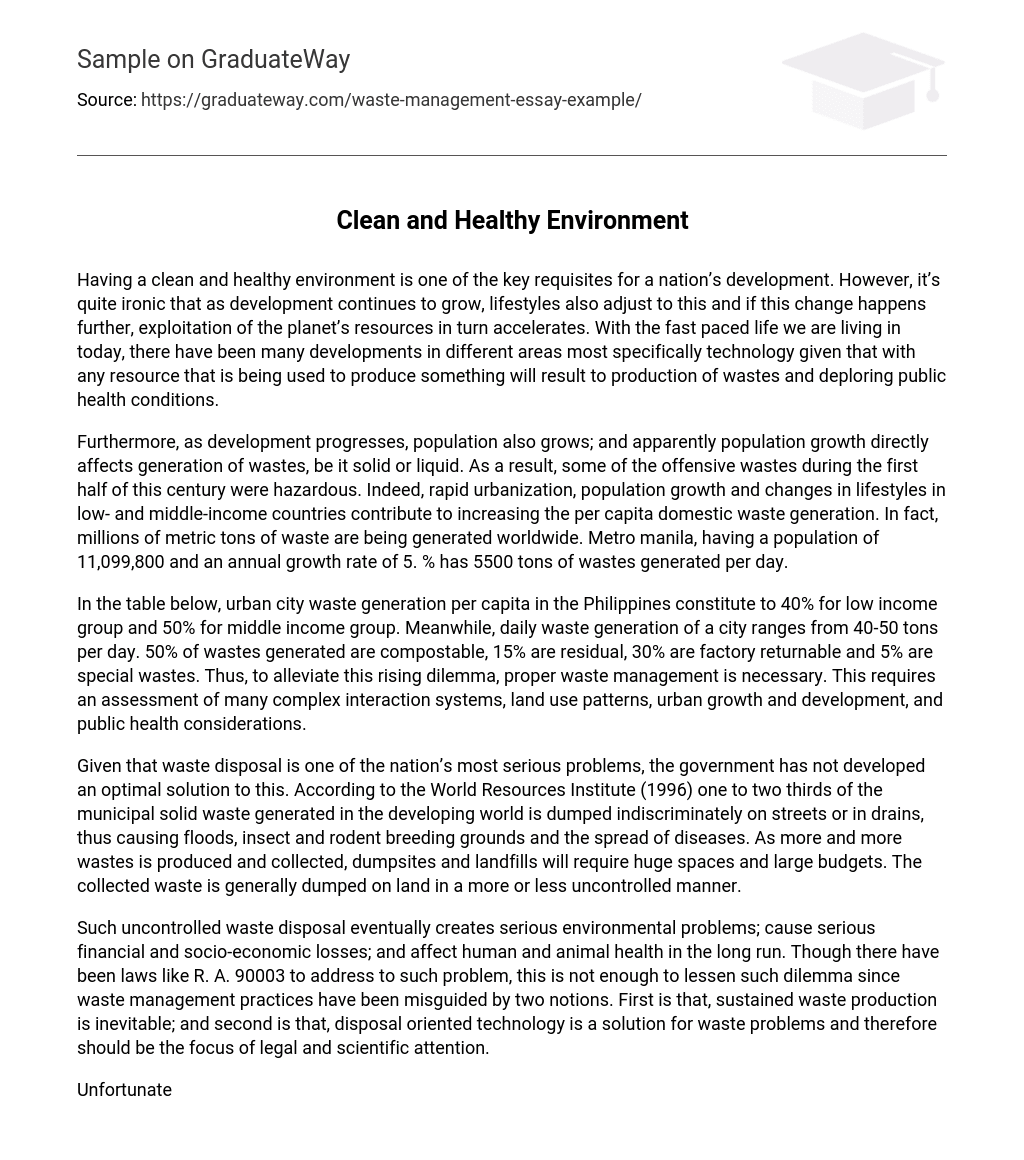Having a clean and healthy environment is one of the key requisites for a nation’s development. However, it’s quite ironic that as development continues to grow, lifestyles also adjust to this and if this change happens further, exploitation of the planet’s resources in turn accelerates. With the fast paced life we are living in today, there have been many developments in different areas most specifically technology given that with any resource that is being used to produce something will result to production of wastes and deploring public health conditions.
Furthermore, as development progresses, population also grows; and apparently population growth directly affects generation of wastes, be it solid or liquid. As a result, some of the offensive wastes during the first half of this century were hazardous. Indeed, rapid urbanization, population growth and changes in lifestyles in low- and middle-income countries contribute to increasing the per capita domestic waste generation. In fact, millions of metric tons of waste are being generated worldwide. Metro manila, having a population of 11,099,800 and an annual growth rate of 5. % has 5500 tons of wastes generated per day.
In the table below, urban city waste generation per capita in the Philippines constitute to 40% for low income group and 50% for middle income group. Meanwhile, daily waste generation of a city ranges from 40-50 tons per day. 50% of wastes generated are compostable, 15% are residual, 30% are factory returnable and 5% are special wastes. Thus, to alleviate this rising dilemma, proper waste management is necessary. This requires an assessment of many complex interaction systems, land use patterns, urban growth and development, and public health considerations.
Given that waste disposal is one of the nation’s most serious problems, the government has not developed an optimal solution to this. According to the World Resources Institute (1996) one to two thirds of the municipal solid waste generated in the developing world is dumped indiscriminately on streets or in drains, thus causing floods, insect and rodent breeding grounds and the spread of diseases. As more and more wastes is produced and collected, dumpsites and landfills will require huge spaces and large budgets. The collected waste is generally dumped on land in a more or less uncontrolled manner.
Such uncontrolled waste disposal eventually creates serious environmental problems; cause serious financial and socio-economic losses; and affect human and animal health in the long run. Though there have been laws like R. A. 90003 to address to such problem, this is not enough to lessen such dilemma since waste management practices have been misguided by two notions. First is that, sustained waste production is inevitable; and second is that, disposal oriented technology is a solution for waste problems and therefore should be the focus of legal and scientific attention.
Unfortunately, without up-to-date research and development on urban solid waste management, this problem will remain to be without in depth attention; and effectiveness of certain polices will impede. For that reason, this paper attempts to shed light on formulation of policies, programs and laws regarding proper waste management that will be of great help in pursuance of economic development. Furthermore, this research has two concerns: concern for public sector reform and sustainable development in the urban context.





